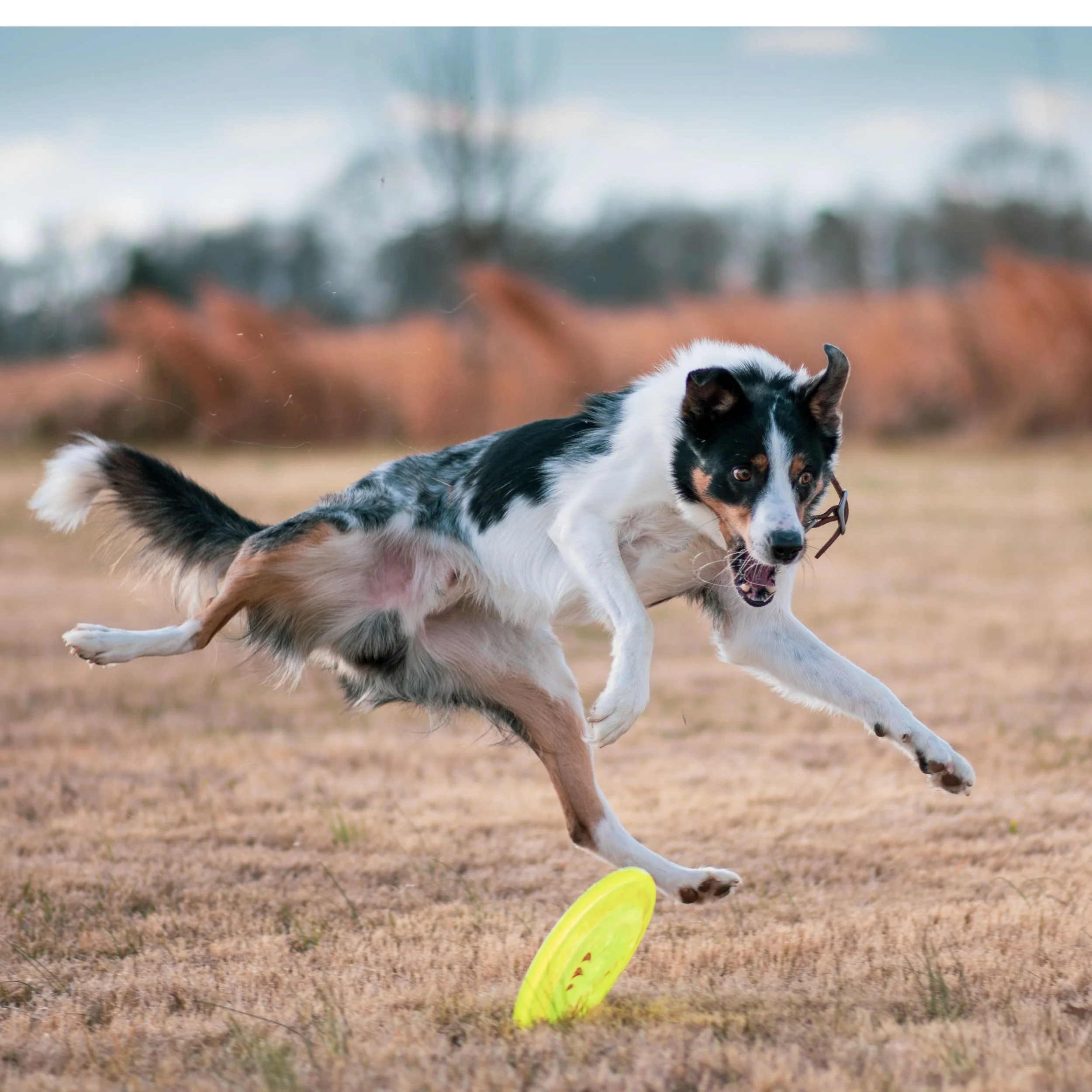Fetch - It’s Not Just Fun and Games
What’s one of the most universal ways people interact with their dogs in America? I’d bet “playing fetch” would top the list. It’s as American as apple pie. And who doesn’t like apple pie?
Well…actually…some people don’t. If you want to really heat up a room, head to a gathering of dog behavior pros and ask if fetch is a good game or not. Then run for cover.
What could possibly be bad about throwing a ball for a dog and have him bring it back? For many dog owners, playing fetch is the primary way they meet their dog’s need for heart-thumping activity. They can throw things in the yard, from the couch - even from the hot tub! - with the bonus being the human doesn’t have to expend much energy.
But in recent times, dog lovers are more closely examining the pros and cons of this type of exercise. A lot of the debate is actually centered around how the dog - and the person - play the game. So to be clear, playing fetch is not necessarily detrimental for all dogs.
However - if your dog plays fetch like a robotic machine; would fetch through a river or brick wall; has dilated pupils and perhaps trembles as he intensely stares at the toy about to be thrown; finds it difficult or impossible to respond to cues of any kind or have the game end - fetch may actually do more harm than good. If your dog behaves this way while fetching, read on.
Even with a conscientious and attentive person we find there are dogs who play fetch in this manner, but we just as often find a distracted human using a Chuck-It or the like, flinging the ball robotically again and again with the sole mission of exhausting their dog…who will play until yes, they are near collapse. If this is how you play fetch with your dog, read on.
But wait - isn’t “a tired dog a good dog”? Well, not all exercise is created equal. There’s a couple of problems with fetch, and these are at the core of the fetching debate.
First is the physical costs of the game: fetch involves sharp acceleration, high speeds, and rapid deceleration that calls on the dog’s “braking” system, which puts a lot of strain on the joints. A hyperaroused dog (think robotic fetcher) will be less mindful of their bodies or other potential dangers. And the more fatigued a dog becomes, the less control they have over body movement. Guess which types of fetchers don’t even recognize they are tired or in pain? So we see these dogs contorting themselves and making movements that fall outside of how the dog's body would normally move: imagine how you’d feel if you fell down a flight of stairs multiple times every day. The sum of all this can spell shorter term issues like repetitive strain injuries, CCL tears, and impact injuries. Overaroused fetchers can also more easily suffer from heat stroke and water intoxication (see the past column about this). As icing on the cake, there’s also long term fallout for these kinds of fetchers: the accumulation of pressure on the joints over the years can result in arthritis and other long term structural problems.
Again, this isn’t applicable to all dogs. Some dogs are only moderately aroused playing fetch and are much more capable of regulating themselves.
Speaking of regulating themselves, there’s also the mental effect of the game, and this is really significant for those overaroused fetchers. Does your dog actually “love” the game - or does it look more like addiction? A canine neuroscientist discussing topic indicated that the neurochemistry of fetching, for some dogs, is quite similar to that of addition in humans. Hmm…I can see that, and if you have a fetcher like this, I bet you can too. So in addition to the dopamine system being hijacked, instead of depleting stress hormones like cortisol, for some dogs fetch can dramatically raise them - which of course, trickles down into behavioral health. Instead of reducing stress, fetch actually increases it for dogs who play this way.
It’s due to all of the above that I think it’s safe to say that for some dogs (especially a good number of herding breeds and working type retrievers) playing fetch, instead of being healthy exercise, can be highly arousing and contribute to problems. Certainly changing the complexion of the game can be, well, a game-changer. Incorporating basic manners and rules in between throws can be one way to cultivate these “robotic-type fetchers” to think when excited, as well as cultivate impulse control. all important skills. I’ve heard that frisbee is perhaps a better option since it decelerates slowly and the dog doesn’t have to brake as hard. I’ve also recently learned about a program the AKC has launched in which the higher level tests involve more complex games of fetch that seem perhaps more ideal for overaroused fetchers. (Google “AKC Fetch Program” and visit the “Test Levels and Titles” tab.) It should of course go without saying that warming up your dog for any intense exercise is key.
But honestly, it might be better just to quit playing fetch of any kind for a while (or perhaps forever) for dogs who play this way since the game is producing a less than ideal brain state along with some significant physical risks. There are lots of other exercise options ranging from vigorous (trotting alongside a bike on flatter ground, playdates with dogs, other types of toy play with humans) to lower arousal, but just as energy burning and perhaps particularly beneficial for easily aroused dogs (like nosework and scent games). The feedback from fetch-head owners I’ve worked with that have eliminated playing the game has been completely favorable in terms of the dog’s overall behavior, and that’s all the evidence I need. Just the other day I crossed paths with someone who quit playing fetch with her overaroused fetcher. When I asked what she found after she did, she said he’s overall a much more relaxed dog now. And understanding what fetch does to some dogs brain chemistry and stress levels, that makes perfect sense.
If you have an overaroused fetcher, give quitting a try and see what you find!
For more details about all the interesting physical aspects of fetch I didn’t delve into here, along with some great recommendations and ideas about alternatives, visit
https://www.mcrehabilitation.com/blog/why-playing-fetch-with-your-dog-is-more-dangerous-than-you-think

